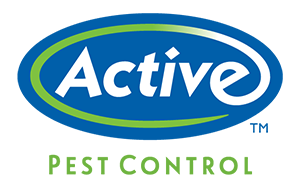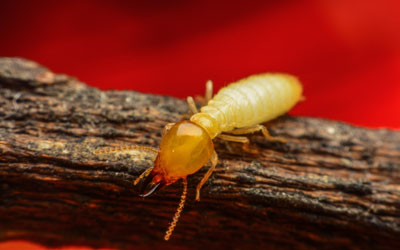 “Termite season” is, unfortunately, all year long here in Atlanta GA. Many assume that termites go dormant in the fall and winter like some other types of pests, but that’s simply not the case. Termites swarm in the spring, but will still dwell in and infest homes throughout the colder months of the year. They are less likely to be seen, especially since they may tunnel further underground to escape dropping temperatures outside. The bottom line is that termites are able to damage your home 24/7, 365 days a year. This makes it all the more important to know how to look for signs of termites in your property, even in the fall and winter months.
“Termite season” is, unfortunately, all year long here in Atlanta GA. Many assume that termites go dormant in the fall and winter like some other types of pests, but that’s simply not the case. Termites swarm in the spring, but will still dwell in and infest homes throughout the colder months of the year. They are less likely to be seen, especially since they may tunnel further underground to escape dropping temperatures outside. The bottom line is that termites are able to damage your home 24/7, 365 days a year. This makes it all the more important to know how to look for signs of termites in your property, even in the fall and winter months.
Termite Life Cycle in the Fall & Winter
Queen termites can lay eggs throughout the year, including in the fall. Their reproduction rate makes it easy for the colony to grow without you even noticing it. The more mature a colony is, the more damage can be made to your home. If you have an infestation festering in your property for more than two years, it is very likely to begin to notice the signs of damage, even in the fall or winter.
We can get cold temperatures in the winter time here in Georgia and Tennessee, and termites may burrow deep underground to protect themselves from the cold air. This is why it’s unlikely to see termites this time of year. However, it’s still important to keep an eye out for the damage they may be causing.
What are the Signs of Termite Activity?
Termites can go unnoticed in your walls for months before any damage begins to appear, which is one of the reasons why they’re so feared! The following damage manifesting in your property could indicate that you likely have a mature termite infestation on your hands:
- Mud tubes
- Discarded swarmer wings
- Termite frass (feces)
- Drywall discoloration
- Loose tiles or buckling floors
- Bubbling or uneven paint on walls
- Holes in drywall
- Crumbling wood
- Hollow-sounding wood
- Sagging sheetrock
Fall Termite Activity in Atlanta
As much as you might wish you didn’t have to worry about termites in the fall and winter, it’s important to stay vigilant about these pests all year long. The termite exterminators at Active Pest Control know how distressing it can be to discover an infestation, which is why we work to prevent them in the first place with our termite treatments. Contact our team today to see how we can keep you termite-free all year long.

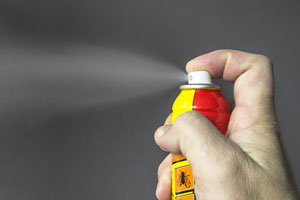 In today’s day and age, the DIY movement is more popular than ever. Whether it’s a household chore, gardening, or an art project, do-it-yourself tasks are favored by many. However, when it comes to pest control, DIY methods are never a long-term solution. We’ve all tried them: vinegar spray for ants, snap traps for rats, store-bought pesticides for roaches … the list goes on. But at-home remedies for pests are unreliable, timely, and can even be expensive. For quick, effective, and guaranteed results, it’s always best to use a professional exterminator such as Active Pest Control. Keep reading for info on the pros and cons of DIY vs. professional pest control here in Atlanta GA!
In today’s day and age, the DIY movement is more popular than ever. Whether it’s a household chore, gardening, or an art project, do-it-yourself tasks are favored by many. However, when it comes to pest control, DIY methods are never a long-term solution. We’ve all tried them: vinegar spray for ants, snap traps for rats, store-bought pesticides for roaches … the list goes on. But at-home remedies for pests are unreliable, timely, and can even be expensive. For quick, effective, and guaranteed results, it’s always best to use a professional exterminator such as Active Pest Control. Keep reading for info on the pros and cons of DIY vs. professional pest control here in Atlanta GA! Spring is almost here, which means pests are on their way! While pest problems are a fact of life in Georgia year-round, springtime sees a big fluctuation in pest problems. This is because many pests that are less active throughout the winter are encouraged by warming temperatures to start invading homes again. To keep spring pests out of your property, it’s important to prepare your home now! Keep reading for tips from the experts at Active Pest Control.
Spring is almost here, which means pests are on their way! While pest problems are a fact of life in Georgia year-round, springtime sees a big fluctuation in pest problems. This is because many pests that are less active throughout the winter are encouraged by warming temperatures to start invading homes again. To keep spring pests out of your property, it’s important to prepare your home now! Keep reading for tips from the experts at Active Pest Control.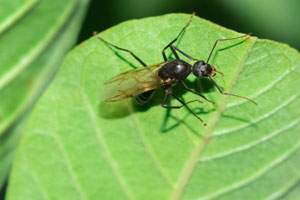 If you think you’ve spotted a termite in or near your home, how can you be so sure it’s not a
If you think you’ve spotted a termite in or near your home, how can you be so sure it’s not a 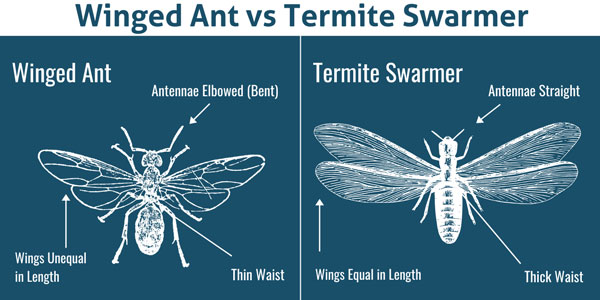

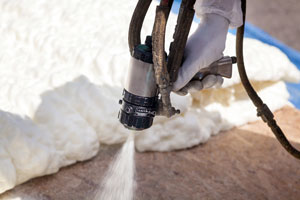 Everyone knows that pest prevention is the best form of pest control, and
Everyone knows that pest prevention is the best form of pest control, and 